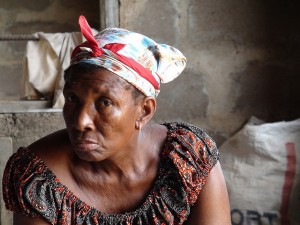According to a new World Bank report linking gender equality and economic development, the axiom “a rising tide lifts all boats” holds some truth. Several decades of rising global income have contributed to an “unprecedented narrowing of gender gaps” in the realms of education, health, and labor opportunities.

At the same time, women still face enormous obstacles, particularly in developing regions. Far fewer girls attend primary and secondary school than their male counterparts; occupationally, women still turn to characteristically “female” (and, often, lower-paying) sectors such as communications services and retail; women outnumber men as victims of domestic violence; and governing bodies around the world are by-and-large male-dominated.
This three-part World Development Report 2012: Gender Equality and Development provides a rubric through which policymakers across the globe should approach the issue of gender inequality. Specifically, the authors address which aspects – such as the extension of legal rights and labor force participation – have progressed as a result of economic growth, and which disparities – including mortality rates and wage equality – persist, requiring political intervention.
What they find is a two-way street. “The links between gender equality and development go both ways,” they say. “Each direction of this relationship matters for policy making.” Economic development is a necessary component of greater gender equality, but greater gender equality is just as important to achieve economic growth.
The report – which draws upon a growing body of quantitative gender research, as well as field research involving over 4,000 men and women from 98 developing countries – repeatedly makes note of the positive correlation between gender equality and economic prosperity. It cites the World Economic Forum’s Index of Economic Participation, which presents a positive correlation between national income (GDP) and equal labor force participation rates.
Similarly, it claims, a more efficient allocation of women’s labor can lead to significant productivity gains. It refers to the UN Food and Agriculture Organization (FAO), which estimates that allowing female farm workers equal access to necessary resources can increase agricultural output by up to 4 percent, a crucial figure in countries in which agriculture comprises a majority of GDP. Moreover, “in a world of open trade,” the report says, “gender inequality has become more costly because it diminishes a country’s ability to compete internationally.”
The authors point to four areas policymakers need to prioritize: equalizing human capital developments, ensuring equal access to education, promoting female agency in the house and in society, and educating and empowering future generations of women.
Ultimately, international cooperation is necessary to make gender equality a reality, the report says.
Global political action, the report says, is the key factor in determining whether “global integration brings about greater gender equality and better lives for all women, or just for some.”
By Cameron Scherer

Danielle Nierenberg, an expert on livestock and sustainability, currently serves as Project Director of State of World 2011 for the Worldwatch Institute, a Washington, DC-based environmental think tank. Her knowledge of factory farming and its global spread and sustainable agriculture has been cited widely in the New York Times Magazine, the International Herald Tribune, the Washington Post, and
other publications.
Danielle worked for two years as a Peace Corps volunteer in the Dominican Republic. She is currently traveling across Africa looking at innovations that are working to alleviate hunger and poverty and blogging everyday at Worldwatch Institute’s Nourishing the Planet. She has a regular column with the Mail & Guardian, the Kansas City Star, and the Huffington Post and her writing was been featured in newspapers across Africa including the Cape Town Argus, the Zambia Daily Mail, Coast Week (Kenya), and other African publications. She holds an M.S. in agriculture, food, and environment from Tufts University and a B.A. in environmental policy from Monmouth College.








